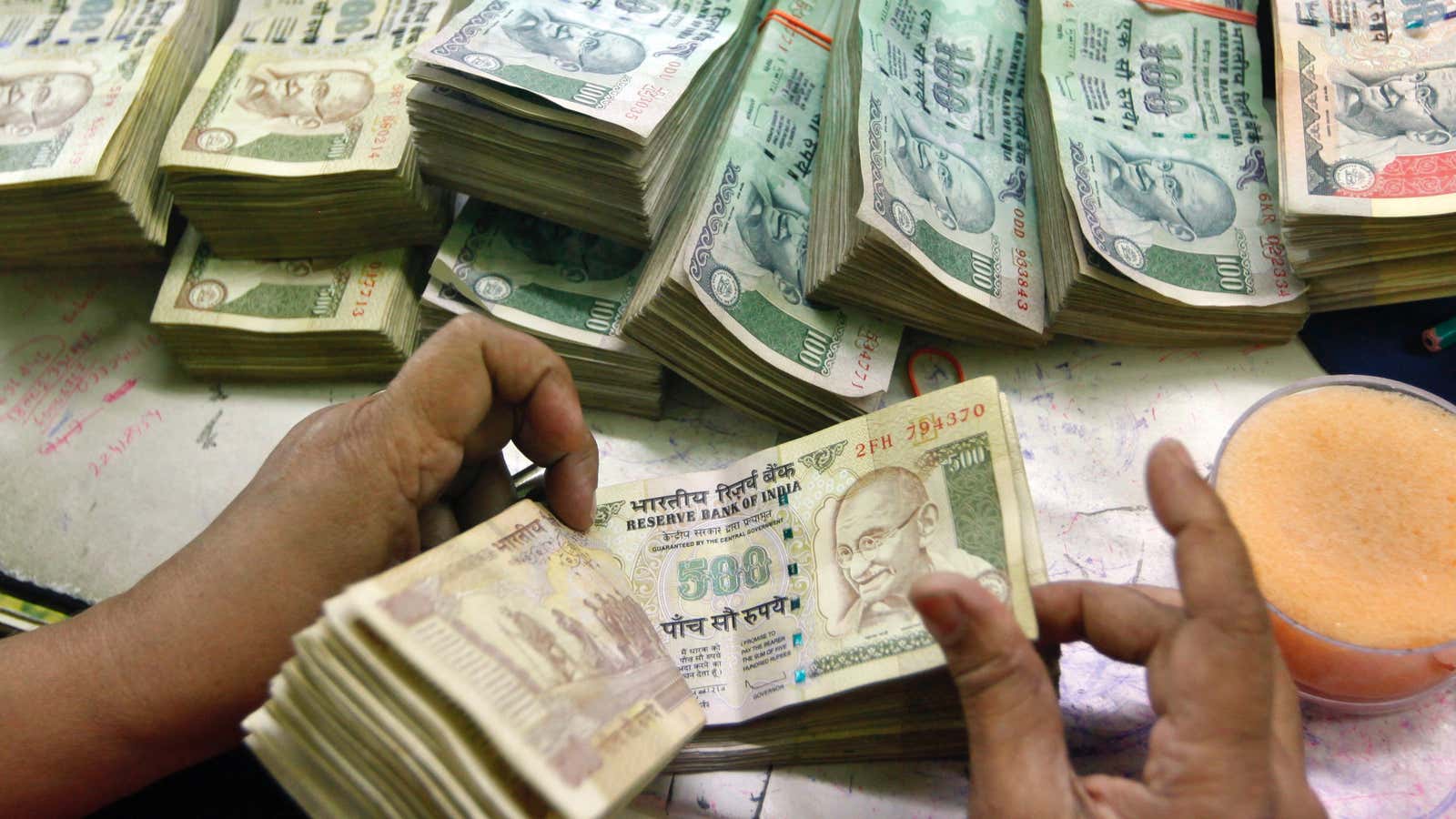If third time’s the charm, the ban on Rs500 and Rs1,000 notes could finally wipe off corruption in India.
Narendra Modi may have shocked the nation with his Nov. 8 announcement, but the prime minister’s move was hardly unprecedented. India has pulled select denominations of its currency twice before.
The first was when Rs1,000, Rs5,000, and Rs10,000 notes were taken out of circulation in January 1946, a year and a half before the country won independence from the British. The Rs10,000 notes were the largest currency denomination ever printed by the Reserve Bank of India, introduced for the first time in 1938. All three notes were reintroduced in 1954.
In the early ’70s, the Wanchoo committee, a direct tax inquiry committee set up by the government, suggested demonetization as a measure to unearth and counter the spread of black money. However, the public nature of the recommendation sparked black money hoarders to act fast and rid themselves of high denominations before the government was able to clamp down on them, Mint reported.
Then, in 1977, the Janata Party coalition government came into power. A year into the government’s term, party leader Morarji Desai was more bullish about cracking down on counterfeits and black money. The High Denomination Bank Notes (Demonetisation) Act, instated by the ruling party on Jan. 16, 1978, deemed the Rs1,000, Rs5,000 and Rs10,000 notes illegal for the second time.
At the time, then-RBI governor I.G. Patel disagreed with the measure and accused the Janata coalition government of trying to cripple the corrupt predecessor governments instead of simply eradicating black money.
For the most part, Modi’s measure mirrors Desai’s—except this time, he has the backing of his RBI governor, Urjit Patel, who applauded Modi’s “very bold step” addressing concerns about the “growing menace of fake Indian currency notes.” But that doesn’t mean all the skeptics are off his back. Economists doubt the impact of his decision.
“That’s because people don’t stack black money in cash. Rather, they stash it in undisclosed accounts in Swiss Banks,” said Abhiroop Sarkar, a professor at the Indian Statistical Institute. “So the demonetization won’t affect the biggest fish.”
